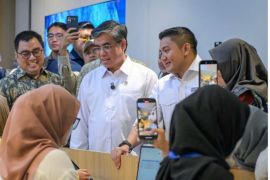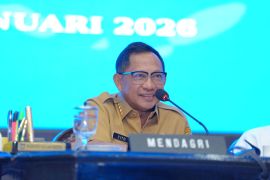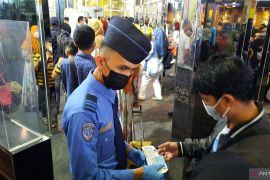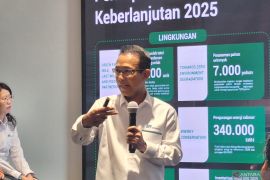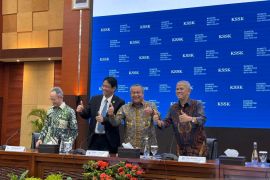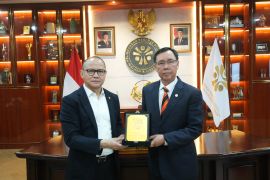Tom Phillips, Chief Government and Regulatory Affairs Officer at the GSMA commented: "It is clear that mobile users are concerned about their privacy and are more likely to interact with apps and receive targeted promotions if they feel it is respected. We urge developers of mobile services and apps to look at the various best practice privacy guidelines available, including those published by the GSMA(2) and the NTIA(3), and start incorporating these into their services. Being honest and transparent with customers boosts their confidence and trust when engaging with what you have to offer."
More Safety, More Mobile Services
The study reveals that better privacy safeguards will alleviate mobile users' concerns and encourage adoption of mobile services and apps:
- Eighty per cent of Indonesian mobile Internet users surveyed are concerned that apps might collect personal information without their permission, and over half of those with concerns limit their use of apps but would use them more if they felt sure their personal information was better safeguarded; and
- Seventy-four per cent of mobile Internet users would consider receiving targeted location-based advertising from a company that asked for their permission first.
Consumers Call For Greater Control Over Personal Data
The research issued today indicates that mobile users want to understand and easily control what types of personal data the different mobile services can access on their devices:
- Seventy-three per cent of those who download apps try to find out what information an app wants to use and why before installing it;
- Seventy-three per cent of Indonesian mobile users want to set their own preferences for the types and timing of ads they receive on their mobile devices;
- Seventy-four per cent of mobile Internet users agree to privacy policies without reading them, mainly because "they are too long"; and
- Eighty-eight per cent of mobile internet users think an industry accredited privacy icon displayed on mobile internet sites they visit (e.g. to indicate the anonymous collection of personal information) would encourage them to accept targeted ads.
The research also found that mobile users value their privacy but do not want to be burdened by long legalistic privacy notices before they can use an app. They want short, simple and easily recognisable icons to help them understand what they are agreeing to. For example, apps that wish to share a user's location with advertisers could display a graphic icon and require them to agree. Such icons are likely to strengthen users' trust with mobile service providers and apps and encourage them to interact with those services more, benefitting both themselves and business.
Safeguarding Personal Information Is Key
Mobile users hold their mobile operator primarily responsible for safeguarding their personal data but want all companies accessing their personal information to respect their privacy rights, irrespective of the type of smartphone, the service or the app they use. They also look to regulators and mobile operators for help when their mobile privacy is invaded:
- More than half (61 per cent) of Indonesian mobile users think their mobile network operator is responsible for safeguarding their personal information even in situations where the operator has no actual control in practice, for example, when they download an app from an independent app store;
- Sixty per cent of mobile users believe a consistent set of rules should apply to any company that has access to their location, irrespective of how they obtain this information; and
- Eighty per cent of Indonesian mobile users said they would contact a regulator/data protection authority and/or their mobile operator, if they suffered a serious invasion of privacy while using an app, regardless of who was responsible.
Phillips continued: "As new data protection laws are being considered in Indonesia, policymakers and industry players have a great opportunity to work together to understand how best to address privacy in the context of mobile devices, and to support opportunities for innovation in privacy management."
The research in Indonesia was conducted by Futuresight Ltd and sponsored by the GSMA in association with XL Axiata. To see the full survey results from Indonesia, visit: www.gsma.com/publicpolicy/mobile-and-privacy/resources.
Notes to Editors
1 Source: Strategy Analytics, 2012
2 http://www.gsma.com/publicpolicy/privacy-design-guidelines-for-mobile-application-development
3 Find out more at the App Trust Project (http://apptrustproject.com) and other initiatives under the National Telecommunications Informational Administration's mobile app transparency programme: http://www.ntia.doc.gov/other-publication/2013/privacy-multistakeholder-process-mobile-application-transparency. NTIA's draft short form notice code of conduct to promote transparency in mobile app practices: http://www.ntia.doc.gov/files/ntia/publications/july_25_code_draft.pdf
About the GSMA
The GSMA represents the interests of mobile operators worldwide. Spanning more than 220 countries, the GSMA unites nearly 800 of the world's mobile operators with more than 230 companies in the broader mobile ecosystem, including handset makers, software companies, equipment providers and Internet companies, as well as organisations in industry sectors such as financial services, healthcare, media, transport and utilities. The GSMA also produces industry-leading events such as the Mobile World Congress and Mobile Asia Expo.
For more information, please visit the GSMA corporate website at www.gsma.com or Mobile World Live, the online portal for the mobile communications industry, at www.mobileworldlive.com.
Editor: PR Wire
Copyright © ANTARA 2013

